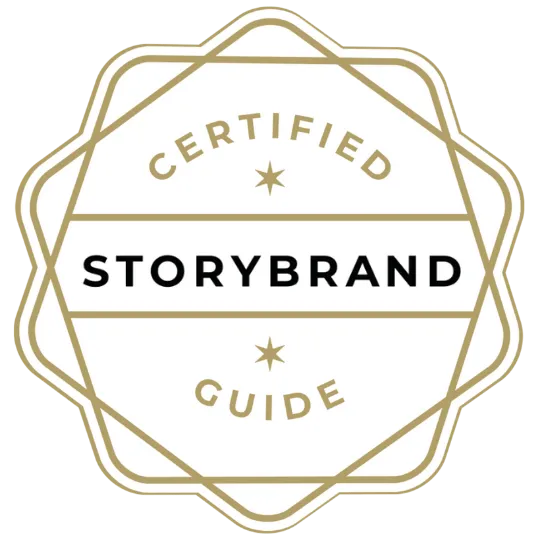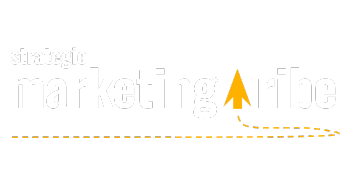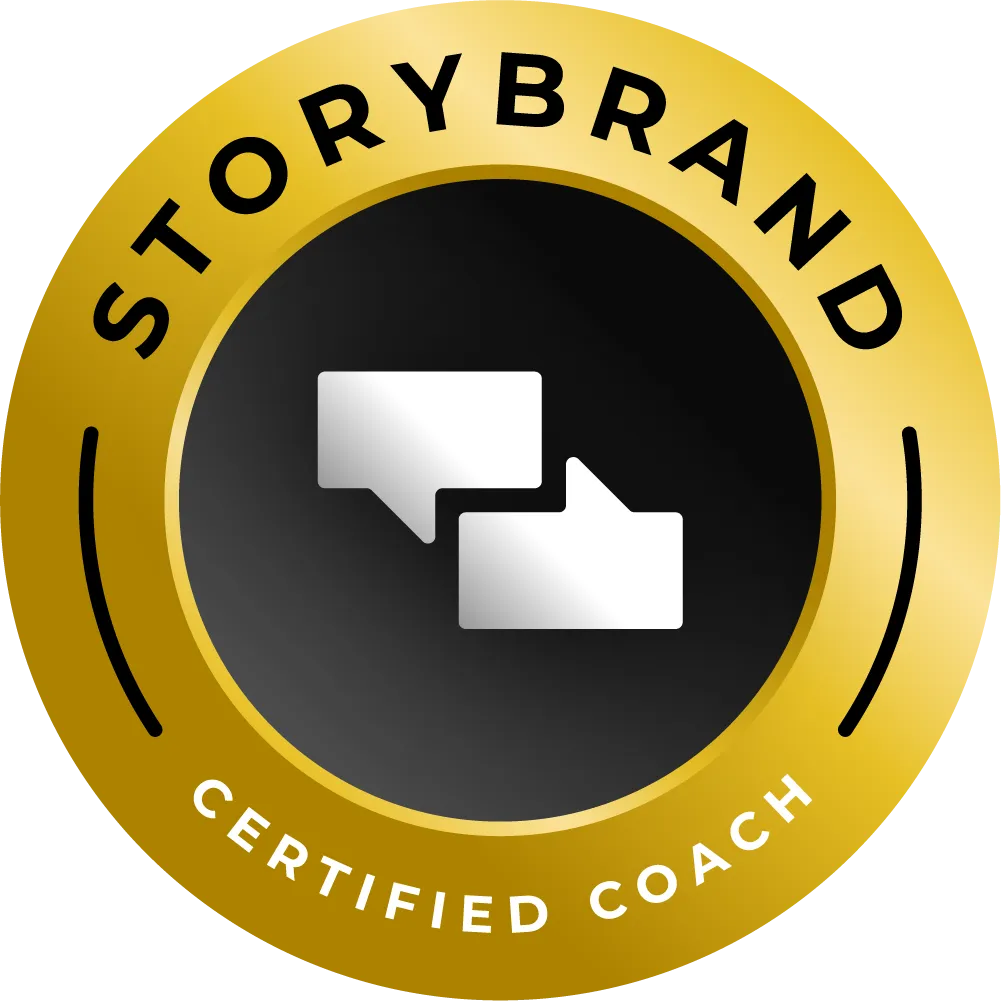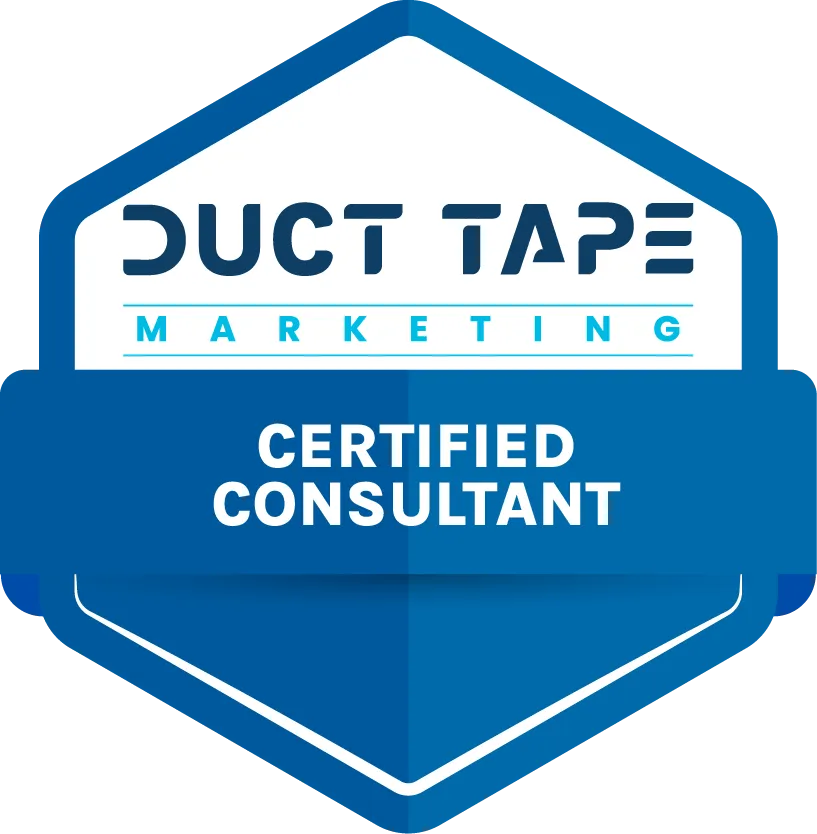STORY, MEET STRATEGY
Let’s make marketing feel less robotic and more real.
Find resources that bring your message—and your business—to life.

Branding in the Age of Presence: Why Showing Up Wins
By Vicky Sidler | Published 23 November 2025 at 12:00 GMT+2
You know that slick About page you spent hours writing? The one with your mission statement, brand values, and heartfelt “why”? It’s not that it doesn’t matter. It’s just that… everyone has one now.
According to a piece in Entrepreneur by John Emery, we’ve hit a turning point in branding. It’s no longer enough to explain why your business exists. The brands that stand out in 2025 are the ones that show up—in person, in community, and in real life.
Welcome to the Age of Presence.
TL;DR:
Branding is shifting from saying the right things to showing up in real life
Experiential marketing is becoming the main act, not a side hustle
Retreats are the new board meetings
Community isn’t a channel. It’s the product
👉 Need help getting your message right? Download the 5-Minute Marketing Fix
Table of Contents:
Branding in the Age of Presence: Why Showing Up Wins
Why Purpose Isn’t Enough Anymore:
The Rise of Brand Experiences You Can Walk Into:
What This Means for Small Businesses:
Leaders Are Joining the Movement Too:
What Does ‘Showing Up’ Look Like for You?
1. How To Pick the Right Clients and Watch Your Business Grow
2. Stop Targeting Everyone: Why Clarity Beats Volume
3. Hub Pages for Small Businesses: The Smart Way to Boost SEO
4. Confused Messaging Is Costing You Leads: Here's How StoryBrand Helps
5. The Marketing Hourglass: Turn Strangers Into Loyal Customers
6. Turn One Piece of Content Into Ten: Free Strategies for Small Businesses
FAQs on Branding in the Age of Presence
1. What does “Age of Presence” actually mean?
2. Is this just for big brands with big budgets?
3. What is experiential marketing and how is it different from regular marketing?
4. Why is purpose no longer enough for branding?
5. What if my business is mostly online? How do I “show up” then?
6. Do retreats really help with branding or leadership?
7. What’s one small way I can start building presence this month?
8. How does presence tie into content marketing?
9. Do I need to clarify my message before I start showing up?
Why Purpose Isn’t Enough Anymore:
We’ve all heard “Start with why.” But now that everyone starts there, it's not a differentiator. Your competitors believe in wellness, sustainability, innovation, or some flavour of empowerment too.
What cuts through today isn’t what you say—it’s where you are. And whether your customers feel you’ve actually shown up for them.
Showing up doesn’t mean being everywhere. It means being somewhere—with intention. That might mean hosting a local event, running a workshop, or just being present in ways that don’t scale.
It means trading noise for nuance.
The Rise of Brand Experiences You Can Walk Into:
Let’s look at how this shift is playing out.
Claude Café, launched by AI company Anthropic, was a temporary pop-up in New York. But it wasn’t about pushing product. Visitors didn’t leave with a sales pitch. They left with a free coffee and a real conversation about AI ethics and innovation. That’s not a funnel. That’s a feeling.
Samsung 837 goes even further. It’s a three-story “brand home” in Manhattan that’s part showroom, part event space, part art gallery. There’s no cash register. No pressure to buy. Just immersive installations, live performances, and hands-on demos designed to bring the brand to life—without the hard sell.
Mercedes-Benz, a name usually associated with showroom glitz and polished ads, now hosts lounges and events where customers interact with design, culture, and each other. Think less car commercial, more creative salon. Luxury, in this case, isn’t about leather seats—it’s about shared experience.
These aren’t stunts. They’re strategy.
What This Means for Small Businesses:
You might be thinking, “That’s great if you’ve got a multimillion rand marketing budget and a Manhattan zip code.” But showing up isn’t about size. It’s about substance.
You can create presence in smaller ways:
Host a dinner for loyal clients
Set up a booth at a community market
Run a workshop in your space
Invite a few customers for coffee and feedback
It’s not about how many people you reach. It’s about the depth of the connection you make.
People trust people. And when you, as the founder or leader, show up in person, you’re not just selling a product—you’re becoming part of someone’s story.
Leaders Are Joining the Movement Too:
This shift isn’t just for consumer brands. Business owners and executives are getting the memo too.
Wellness retreats—once seen as the domain of yogis and juice cleanses—are now full of CEOs doing cold plunges and breathwork between strategy sessions.
Places like Remedy Place, a wellness club in the US, offer ice baths and sound therapy not as pampering but as networking. Hollyhock Institute in Canada blends leadership development with nature walks and mindfulness. And yes, even psychedelic retreats like Beckley Retreats are being used (legally) to help founders reconnect with their purpose, their team, and themselves.
It’s a full-body pivot from “digital-first” to “human-first.”
What Does ‘Showing Up’ Look Like for You?
Maybe it’s less Instagram, more in-person Q&A.
Maybe it’s a live demo, a client meetup, or just being at the same table as your customers—even if that table’s in a church hall, not a WeWork lounge.
Presence means you’re willing to be seen. Not just by algorithms, but by actual people.
And if you want them to remember you, that’s where you start.
Of course, showing up only works if you have something clear to say. If your message is fuzzy, no pop-up, retreat, or event will save it.
That’s where the 5-Minute Marketing Fix comes in. One sentence. Total clarity. Use it to introduce yourself at your next event—or to finally make your homepage worth reading.
Related Posts:
1. How To Pick the Right Clients and Watch Your Business Grow
Showing up only works if you’re showing up for the right people. This article walks you through how to attract better-fit clients and avoid the ones who waste your time.
2. Stop Targeting Everyone: Why Clarity Beats Volume
When presence becomes your strategy, a focused audience becomes your superpower. Learn why narrowing your focus can help your message land more deeply and drive better results.
3. Hub Pages for Small Businesses: The Smart Way to Boost SEO
Showing up in real life is powerful. But your digital presence matters too. This post shows how to structure your site so people can find you, understand you, and stick around.
4. Confused Messaging Is Costing You Leads: Here's How StoryBrand Helps
Your brand experience is only memorable if your message makes sense. Before you host that event or go live, make sure your pitch is clear, compelling, and consistent.
5. The Marketing Hourglass: Turn Strangers Into Loyal Customers
You’ve shown up, made a great first impression—now what? This article explains how to turn those early interactions into repeat business and long-term loyalty.
6. Turn One Piece of Content Into Ten: Free Strategies for Small Businesses
After you’ve hosted an event or shared your story in person, don’t let it end there. Learn how to stretch that one moment into multiple marketing touchpoints.
FAQs on Branding in the Age of Presence
1. What does “Age of Presence” actually mean?
It’s the idea that showing up in real life—whether through events, conversations, or community experiences—is now more powerful for building trust than slogans or digital ads. It’s about being felt, not just seen.
2. Is this just for big brands with big budgets?
Not at all. While companies like Mercedes-Benz and Samsung are doing it at scale, small businesses can apply the same principle. A simple customer dinner, workshop, or pop-up booth counts as presence. It’s about intention, not production value.
3. What is experiential marketing and how is it different from regular marketing?
Experiential marketing creates real-world moments where people interact with your brand directly. Instead of telling people who you are, you let them experience it. Think live demos, community events, or even a branded café—not just running Facebook ads.
4. Why is purpose no longer enough for branding?
Most brands now have some version of “We care about X.” That message alone doesn’t stand out anymore. What matters is how you demonstrate that purpose—especially in ways your audience can feel or participate in.
5. What if my business is mostly online? How do I “show up” then?
Even digital-first businesses can build presence. Host local meetups. Offer one-on-one consults. Speak at events. Or just show your face on camera and share behind-the-scenes moments. The goal is to add a human touch that builds trust.
6. Do retreats really help with branding or leadership?
They do if you approach them with the right mindset. Many founders use retreats to reconnect with their vision, find clarity, or deepen team alignment. It’s less about yoga mats and more about presence—away from the noise.
7. What’s one small way I can start building presence this month?
Call three of your top clients and ask them to coffee. Or attend a local event where your ideal customers hang out. It doesn’t need to be fancy. It just needs to be real.
8. How does presence tie into content marketing?
Every real-world moment you create can feed your content strategy. A short video from an event, a blog post about what you learned, or photos from a workshop can extend your presence across your digital channels.
9. Do I need to clarify my message before I start showing up?
Yes. Presence only works if people understand what you’re offering. That’s why I always recommend starting with the5-Minute Marketing Fix so your message is clear and consistent when you do show up.
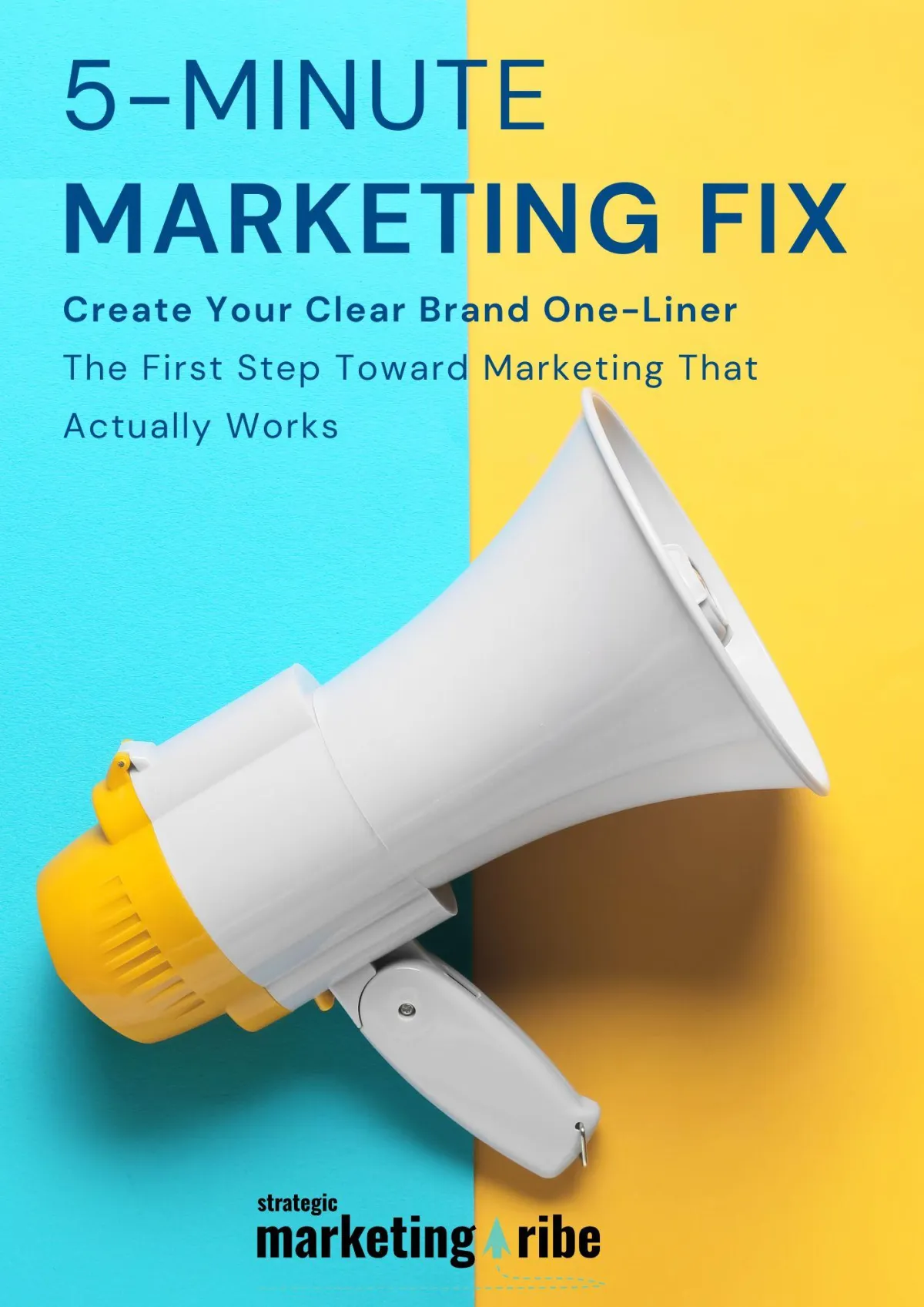
Created with clarity (and coffee)
